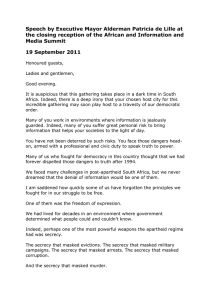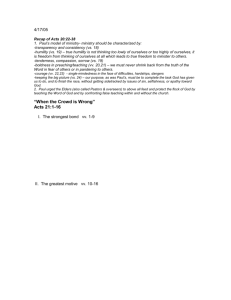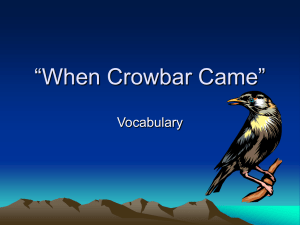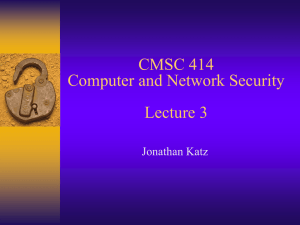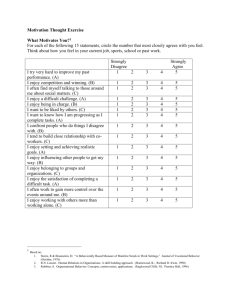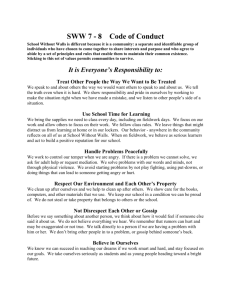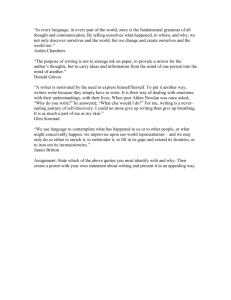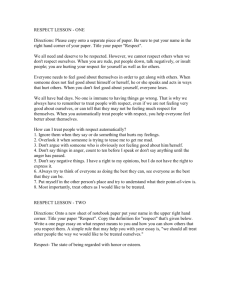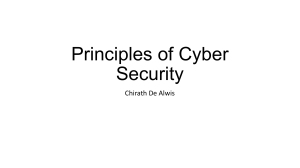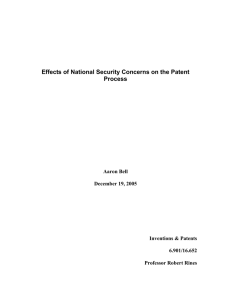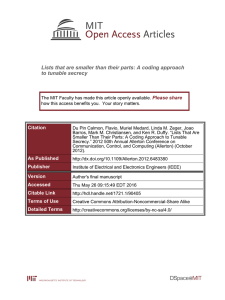Speech by the City’s Executive Mayor, Patricia de Lille, at... International Press Institute World Congress and Annual General
advertisement
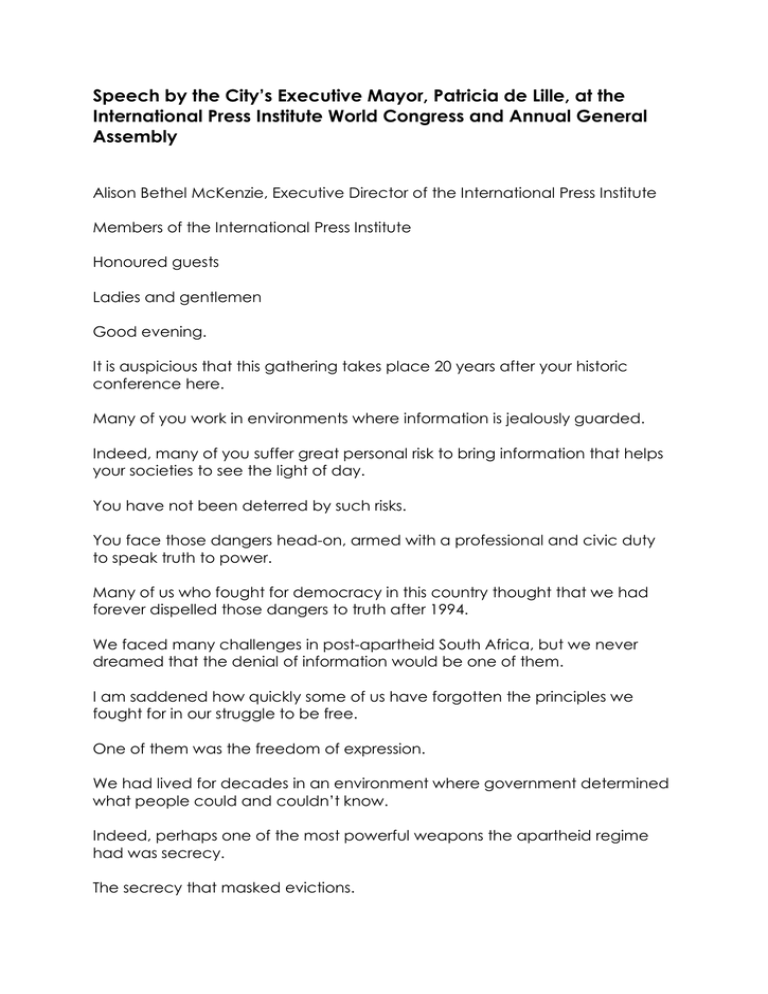
Speech by the City’s Executive Mayor, Patricia de Lille, at the International Press Institute World Congress and Annual General Assembly Alison Bethel McKenzie, Executive Director of the International Press Institute Members of the International Press Institute Honoured guests Ladies and gentlemen Good evening. It is auspicious that this gathering takes place 20 years after your historic conference here. Many of you work in environments where information is jealously guarded. Indeed, many of you suffer great personal risk to bring information that helps your societies to see the light of day. You have not been deterred by such risks. You face those dangers head-on, armed with a professional and civic duty to speak truth to power. Many of us who fought for democracy in this country thought that we had forever dispelled those dangers to truth after 1994. We faced many challenges in post-apartheid South Africa, but we never dreamed that the denial of information would be one of them. I am saddened how quickly some of us have forgotten the principles we fought for in our struggle to be free. One of them was the freedom of expression. We had lived for decades in an environment where government determined what people could and couldn’t know. Indeed, perhaps one of the most powerful weapons the apartheid regime had was secrecy. The secrecy that masked evictions. The secrecy that masked military campaigns. The secrecy that masked arrests. The secrecy that masked corruption. And the secrecy that masked murder. We have had challenges in accessing information. But we never dreamed that we would actively legislate to remove the protection of those who protect our democracy. That is the situation we face in South Africa today. No doubt you have heard of the Protection of Information Act here in South Africa. While the act is better than its draft form when it was a bill, it will make the lives of journalists and the truth-tellers of our society that much more dangerous. It is a backward law for a land that sought to be forward-looking. I hope you have had fruitful engagements here. This conference has been a unique and extraordinary meeting of minds and expertise. I hope that you take what you have learned from each other and apply it to your societies. But as you move forward in your own countries, do so with a warning. Sometimes those who achieve power on the tide of history forget the principles that once moved them to action. I have spent a great deal of time reflecting on what 20 years of democracy means for South Africa. I think if I can find a central theme it is one of change: change from oppression and a closed society to a more open country with freedoms such as the right to express yourself and speak your mind. But transformation, the process of change, is difficult. It is especially difficult for a country like South Africa that is in transition: transition from one order to another; transition from the architecture of prejudice to a constitutional state of equality and freedom. During the negotiations, there were certain principles that the liberation movements agreed on. The first was that the rule of law and a constitutional state was paramount. The second was that we would have to accept that in a transition, you do not dismantle the institutions of society in order to transform it. Rather, you change them from within and position them for a different social purpose. That social purpose would be redress and reconciliation, and the protections of the rights of individuals, missions for which our institutions would require the very strongest foundations. In the past 20 years, we have confronted many challenges. We have faced the realities of our old prejudices and tried to make something new – for ourselves and our children. Much of the past clings to us, as it must shape us and remind us of who we are and how we came to be. But even so, we committed ourselves, as a nation and as a people, to move forward together, to transform South Africa. And that transformation would require every institution in society: from the courts; to parliament; to our religious institutions; to civil society; the world of business; and the media. It would require a meaningful effort to make a new future by everyone working towards redress and reconciliation for a more lasting impact. There have always been certain imperatives: the need to make things better than they were before; to uplift socio-economic opportunities, especially for those who were denied them in the past; and to create a society where an individual can access opportunity, be at liberty and make a better life for her or himself while being able to express their freedom. It is to live free and without discrimination and to help those who come from disadvantaged conditions access freedom through substantive help. It is a project of social justice that seeks to make dignity for the individual a reality. These are ambitious goals, to be sure. Indeed, they can only be served with total commitment, complete transparency and selfless leadership that does all that it can to make the future we hope for a reality. We have achieved a great deal in the past two decades. But we cannot let the hope of the future we dreamed of in 1994 be seized by setting our sights, and our dreams, lower. If we did so, we would allow the project of transformation to be derailed and only because we were not brave enough to hold ourselves to the very highest standards. We have achieved the unachievable in this country. And we did it each time we went to the ballot box and committed ourselves to the South African project. The dream of a transformed South Africa is a fragile one. It requires care and vigilance. And it requires that all of us hold ourselves and our leaders to account; not only at the ballot box but in a free press too. In conclusion, however hard it may be at times, we must guard the freedom of expression as one of our greatest treasures. Only then can we set our sights on remaining free. Thank you, baie dankie, enkosi.
